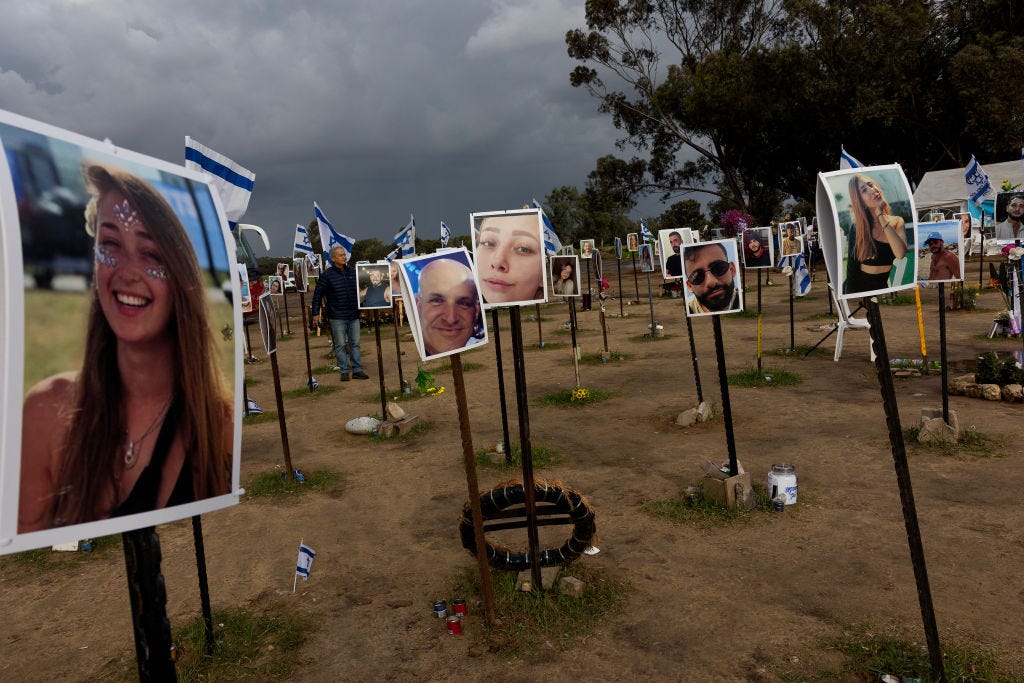On The Importance Of Imagining Ourselves As Monsters
This time, Ta-Nehisi Coates is correct
I’ll move on from Ta-Nehisi Coates and from Israel after this, I promise. Later this week I’ll have a post about the Centers for Disease Control and Prevention’s slanting of science which I think you’ll find interesting, followed by a post about Richard Dawkins, dogmatism, and violence.
But in the meantime, I was really struck by the latest outrage over Ta-Nehisi Coates’s latest book and its essay on the Israeli-Palestinian conflict (see my last post for more details). It comes from a clip of him appearing on Trevor Noah’s podcast, at about 18:04.
Coates said:
I haven’t said this out loud, but I think about it a lot. Were I, 20 years old, born into Gaza, which is a giant open-air jail — and what I mean by that is if my father is a fisherman and he goes too far out into the sea, he might get shot by somebody off of, you know, the side of Israeli boats. If my mother picks the olive trees and she gets too close to the wall, she might be shot. If my little sister has, you know, cancer and she needs treatment because there are no, you know, facilities to do that in Gaza and I don’t get the right permit, she might die. And I grow up under that This is too far. I don’t know that I am. I don’t know that I am. And I just wish we had room to work through that. You know what I mean? And to think about that and to talk about that. And I think that is not unique to Israel. That is not unique to Palestine. That is not unique to Zionism. That is human history. That’s human beings. I always tell people: They think if they lived in the time of slavery that they would not have been enslavers. And I always thought, You would have! You would have,’cuz it’s a system! And most human beings, we exist within context. Within context. And without that, you know what I mean? This idea that there can be some triumphant, heroic individual who’s going to go above and beyond. That just, that’s not a real thing. That’s not history.
I couldn’t be more Team Coates here, to be honest.
Perhaps I’m in the minority. Many people, already mad at Coates over his essay, piled on him for expressing this view. “Coates is now openly empathizing with and justifying October 7 terrorists, who raped and murdered hundreds of women and children,” is just one representative example from a Twitter rando.
Charlie Kirk opined:
Left-wing writer Ta-Nehisi Coates says he might be willing to join in a 10/7-style massacre of civilians:
“Am I also strong enough or even constructed in such a way where I say this is too far? I don’t know that I am.”
This is how the left talks about massacring toddlers. Remember this when they flood our towns with unvetted migrants from the Third World.
To be fair, it wasn’t just Kirk types — a significant number of people who I tend to agree with also seemed to be mad at Coates. Whereas I felt there were plenty of legitimate complaints about Coates’s essay, in this case I think those who are mad are missing the point.
Part of the problem is that the clip they were responding to cut off right after Coates said he wasn’t sure he had the strength not to participate in the massacre. In the full segment, Coates quickly noted that he wasn’t making a claim specific to Israel/Palestine, and that’s important.
Coates is making a very basic, very important argument about what Bernard Williams and Thomas Nagel called “moral luck.” I love this concept and have mentioned it before in this newsletter.
Here’s the money paragraph from Nagel:
Whether we succeed or fail in what we try to do nearly always depends to some extent on factors beyond our control. This is true of murder, altruism, revolution, the sacrifice of certain interests for the sake of others — almost any morally important act. What has been done, and what is morally judged, is partly determined by external factors. However jewel-like the good will may be in its own right, there is a morally significant difference between rescuing someone from a burning building and dropping him from a twelfth-story window while trying to rescue him. Similarly, there is a morally significant difference between reckless driving and manslaughter. But whether a reckless driver hits a pedestrian depends on the presence of the pedestrian at the point where he recklessly passes a red light. What we do is also limited by the opportunities and choices with which we are faced, and these are largely determined by factors beyond our control. Someone who was an officer in a concentration camp might have led a quiet and harmless life if the Nazis had never come to power in Germany. And someone who led a quiet and harmless life in Argentina might have become an officer in a concentration camp if he had not left Germany for business reasons in 1930.
It’s extremely easy to say, “Well, were I in that situation, I would have stood up for what is right!” It’s much harder to do what Coates did and say, “I’m not sure.” It’s also much more accurate. If, in looking back on some incident of human depravity, you conclude that surely you wouldn’t have been a perpetrator, you’re either deluded or a saint, and I know where I’m putting my money.
Keep reading with a 7-day free trial
Subscribe to Singal-Minded to keep reading this post and get 7 days of free access to the full post archives.


